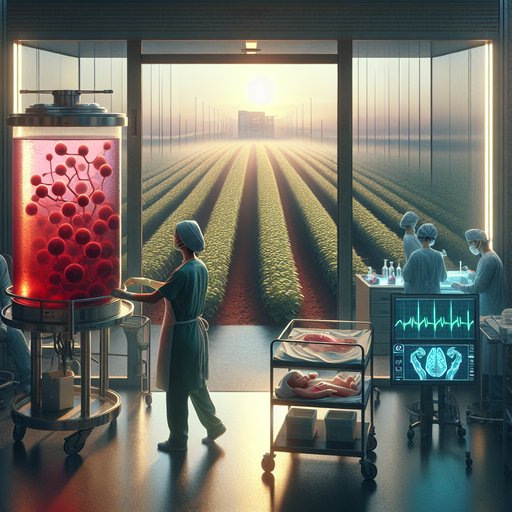
The landscape of genetic research is witnessing a transformative shift with CRISPR and artificial intelligence leading the charge in bioengineering innovations for various sectors, including health and agriculture. As of 2025, the global bioengineering market is valued at an impressive USD 294.5 billion, with projections indicating significant growth driven by advancements in CRISPR technology. These innovations are set to not only enhance personalized medicine but also contribute to sustainable agricultural practices, tackling some of the world's most pressing challenges.
Recent reports highlight the integral role of CRISPR in driving innovations within the health and agriculture sectors. With AI supporting the analytics of genetic data, these advancements have paved the way for personalized medicine to flourish, offering targeted treatments tailored to individual genetic profiles. The melding of CRISPR and AI technologies promises to accelerate the expansion of the bioengineering market, fueling a compound annual growth rate of 12.3% from 2025 through 2034 [1]. CRISPR Therapeutics, a prominent figure in this field, has been receiving positive market sentiment with an 'overweight' rating from financial analysts at Piper Sandler.
This reflects growing investor confidence in the ability of CRISPR-based companies to deliver groundbreaking solutions that could redefine the future of gene editing and therapy [2]. Such optimism is underpinned by ongoing developments aimed at creating sustainable practices in agriculture, which include using CRISPR to engineer crops with improved resilience and nutritional value. While CRISPR's potential seems boundless, the field is not without its challenges. Rocket Pharmaceuticals is currently navigating a complex situation involving a securities class action lawsuit and a clinical hold by the FDA on one of its gene therapy trials.
These developments underscore the delicate balancing act required in advancing gene therapy while ensuring robust safety protocols and regulatory compliance [3]. Despite such setbacks, the momentum within the industry remains strong as firms work towards establishing new norms in genetic editing and therapy. Moreover, the broader implications of these innovations stretch beyond health and agriculture. Student innovations are driving the use of gene editing technologies in addressing malnutrition with sustainable solutions, showcasing the wider societal benefits of these advancements [4].
With a growing commitment to integrating ethical considerations into genetic research, the bioengineering sector stands on the cusp of delivering innovations that are not only scientifically groundbreaking but also socially responsible.
Sources
- Bioengineering Technology Research Report 2025-2034 | CRISPR and AI Drive Innovations in Health and Agriculture, Sustainable Practices and Personalized Medicine Accelerate Expansion (GlobeNewswire, 2025-06-30)
- CRISPR Therapeutics (NASDAQ:CRSP) Receives Overweight Rating from Piper Sandler (ETF Daily News, 2025-06-28)
- Rocket Pharmaceuticals, Inc. (RCKT) Faces Securities Class Action Amid Protocol Change and FDA’s Clinical Hold on Gene Therapy Trial – Hagens Berman (GlobeNewswire, 2025-06-30)
- Empowering Student Innovation (Core77.com, 2025-06-30)
























